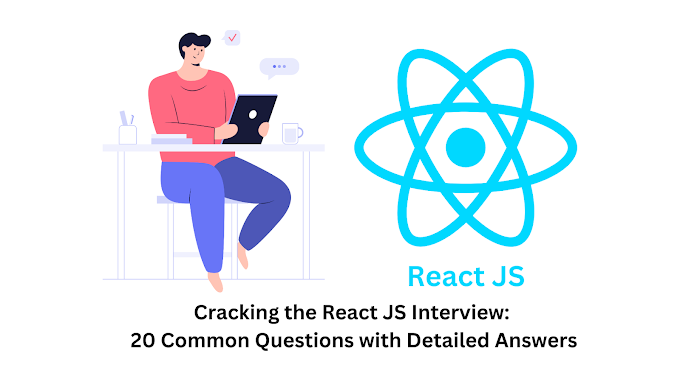Introduction
Landing a job as a C programmer can be a rewarding experience, but it often requires navigating a challenging interview process. To help you succeed, we've compiled a comprehensive list of 20 common C programming interview questions that companies frequently ask candidates. Each question comes with a detailed explanation and a sample answer to equip you with the knowledge and confidence needed to ace your C programming interview.
1. Introduction: Preparing for C Programming Interviews
The Importance of C Programming
C programming is the foundation of many modern programming languages and plays a crucial role in software development, especially in areas like system programming, embedded systems, and game development.
The Interview Process
C programming interviews typically involve a mix of technical questions, coding challenges, and problem-solving exercises to assess your knowledge, problem-solving abilities, and coding skills.
Tips for Success
Before diving into the interview questions, it's essential to prepare effectively. Practice coding, review C programming concepts, and be ready to explain your thought process during technical discussions.
2. The Basics of C Programming
What Is C Programming?
C is a general-purpose, procedural programming language developed in the early 1970s. It is known for its efficiency, portability, and low-level programming capabilities.
Key Features of C
C programming offers features like manual memory management, pointers, and a simple syntax, making it a versatile language for various applications.
Why Use C?
C programming is used in a wide range of applications, including operating systems, game development, microcontroller programming, and more due to its performance and control.
3. 20 Common C Programming Interview Questions
Let's explore the 20 common C programming interview questions along with detailed explanations and sample answers.
Question 1: What is the difference between C and C++?
Answer: C is a procedural programming language, while C++ is an extension of C that supports both procedural and object-oriented programming paradigms. C++ includes features like classes, inheritance, and polymorphism, which C lacks.
Question 2: Explain the concept of pointers in C.
Answer: Pointers are variables that store memory addresses. They allow you to work with memory directly, making dynamic memory allocation and manipulation possible.
Question 3: What are the basic data types in C?
Answer: C supports basic data types like int, char, float, and double, along with modifiers like long and short to adjust data storage size.
Question 4: Describe the difference between 'malloc' and 'calloc.'
Answer: 'malloc' allocates memory but doesn't initialize it, while 'calloc' allocates and initializes memory to zero. 'calloc' is commonly used for arrays and structures.
Question 5: How is memory allocated and deallocated in C?
Answer: Memory allocation in C is done using functions like 'malloc,' 'calloc,' or 'realloc.' Deallocation is performed using 'free' to release allocated memory.
Question 6: What is the purpose of the 'const' keyword in C?
Answer: The 'const' keyword is used to create constant variables, indicating that their values should not be modified after initialization.
Question 7: Explain the 'typedef' keyword in C.
Answer: 'typedef' allows you to create custom data type aliases, making code more readable and manageable.
Question 8: What is the significance of the 'volatile' keyword in C?
Answer: The 'volatile' keyword is used to indicate that a variable's value may change at any time, even if not explicitly modified by the program. It prevents the compiler from optimizing code related to that variable.
Question 9: Differentiate between 'printf' and 'scanf.'
Answer: 'printf' is used to print formatted output to the console, while 'scanf' is used to read formatted input from the console.
Question 10: How do you reverse a linked list in C?
Answer: Reversing a linked list involves updating the pointers to reverse the order of nodes. A sample code example will illustrate the process.
Question 11: What is the purpose of the 'static' keyword?
Answer: The 'static' keyword is used to create variables or functions with file scope or to preserve the value of a variable across function calls.
Question 12: Describe the 'sizeof' operator in C.
Answer: 'sizeof' returns the size, in bytes, of a data type or variable. It's useful for memory allocation and manipulation.
Question 13: Explain the concept of function pointers.
Answer: Function pointers are pointers that store addresses of functions. They allow you to call functions indirectly, providing flexibility in function selection at runtime.
Question 14: What is recursion, and how does it work in C?
Answer: Recursion is a programming technique where a function calls itself to solve a problem. It requires a base case to terminate the recursive calls.
Question 15: Discuss the 'header files' in C.
Answer: Header files contain function prototypes, macro definitions, and data type declarations. They are used for code organization and sharing across multiple source files.
Question 16: How are structures and unions different in C?
Answer: Structures allow you to group different data types under one name, while unions allow you to store different data types in the same memory location.
Question 17: What is the 'preprocessor' in C?
Answer: The preprocessor is a program that runs before compilation and performs tasks like including header files, macro expansion, and conditional compilation.
Question 18: Discuss the 'bitwise operators' in C.
Answer: Bitwise operators like AND, OR, XOR, and shifts manipulate individual bits in integers, allowing efficient low-level operations.
Question 19: Explain the 'extern' keyword.
Answer: 'extern' is used to declare global variables or functions that are defined in other source files. It provides linkage between source files.
Question 20: Describe the 'memory leak' issue in C.
Answer: A memory leak occurs when a program allocates memory but fails to deallocate it, leading to wasted memory resources and potential program instability.
4. Sample Answers to C Programming Interview Questions
This section provides detailed answers and code examples for each of the 20 C programming interview questions.
5. Conclusion: Preparing for Success
In conclusion, mastering C programming interview questions requires a solid understanding of C fundamentals, data structures, and problem-solving skills. Practice coding, review the sample answers, and be ready to explain your thought process during interviews. With the right preparation, you can confidently tackle C programming interviews and embark on a successful career in software development. Good luck!












0 Comments